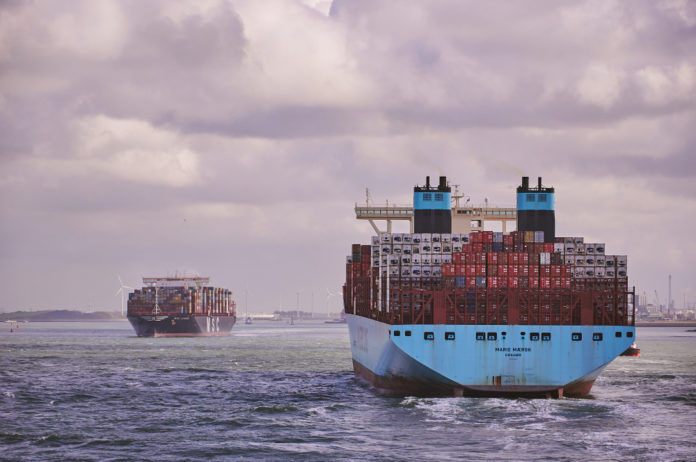The global freight market is believed to have grown to $116 billion in 2019. Unfortunately, despite the resilience of the industry as a whole, freight companies still struggle in the 21st Century.
If you run a freight company, then you need to be realistic about the challenges that lie ahead and the steps that you need to take to mitigate your risks. The world of professional freighting can be highly competitive. With a seemingly endless variety of options to choose from, many clients won’t hesitate to cut ties with a freighting company that consistently performs below expectations.
As such, client satisfaction should be among the top priorities of every freighting operation. Of course, this isn’t to say that every company that loses clients willfully treats customer service like an afterthought. In many cases, companies don’t even realize that their approach to transporting cargo is drawing the ire of clients. Freighting services that wish to maintain a solid client base and favorable professional reputation should steer clear of the following behaviors.
Negligence with Cargo Handling
The manner in which your company handles cargo can say a lot about your general work ethic and approach to customer service. As anyone who’s worked in freighting can attest, cargo handling is far from a “one size fits all” affair. Different types of cargo require different levels of care. Items that are climate-sensitive, for example, should be stored and transported in a way that doesn’t expose them to extreme temperatures. By the same token, fragile items that have a low tolerance for shaking, jostling and shocks should be placed in special shipping containers and packing in a very specific manner.
You can illustrate your company’s dedication to careful cargo handling by investing in state-of-the-art monitoring tools. Temperature monitors, shock recorders and vibration monitoring aids will provide clients with an accurate rundown of the travel conditions their cargo faced while en route to its destination. If these tools reveal that there were no major issues during transport, you can expect to see a lot of first-time patrons become regular clients.
Promising More Than You Can Deliver
It’s easy to get carried away when trying to win the business of a prospective client. To ensure that a potential customer doesn’t take their business to one of your competitors, you may be tempted to make lofty promises you’re incapable of delivering on. However, while ridiculous promises may get certain patrons to take a chance on your company, they’re unlikely to stick around when they see that you’re unable to make good on those claims.
As is the case in most areas of life, honesty is the best policy when trying to win the trust of new clients. Being completely upfront about what your company has to offer may not knock a client’s socks off, but it will provide them a clear understanding of what they can expect when enlisting your services and prevent disappointment down the line.
Refusing to Adopt New Technology
When people think of the freighting industry, technology generally isn’t the first thing that comes to mind. On its face, transporting cargo from one location to another doesn’t seem like a particularly tech-driven profession. While this mindset is fairly understandable, it’s also incredibly flawed. Recent years have seen a sea change in freighting technology, and it shouldn’t come as a surprise that companies willing to embrace these advances tend to be very successful. On the flipside, companies that willfully remain behind the times often have trouble keeping pace with their tech-savvy competitors.
Failure to Take Deadlines Seriously
You’d be hard-pressed to find a freighting company that’s never missed a delivery deadline. In some instances, cargo arrives late due to conditions that are outside of anyone’s control. Dangerous weather, hazardous travel conditions and operator illness are all common examples of the latter. To their credit, many clients are understanding enough to accept that some late deliveries are unavoidable. However, if your company regularly misses delivery deadlines as a result of overpromising and/or poor planning, don’t expect clients to stick around. You can effectively nip this problem in the bud by setting realistic delivery dates and not committing to deadlines you know you won’t be able to meet.
Like any other enterprise, freighting has its fair share of reliable service providers, as well as a number of companies that could stand to see some improvement. Additionally, since repeat business is crucial to the success of any freighting service, it behooves providers to make customer service one of their top priorities. If your dedication to client satisfaction is lacking, don’t be surprised when customers with whom you’ve done business for years give their patronage to other providers.
Address Client Concerns to Minimize Turnover as a Freight Operator
If you run a freight company, then you need to address the risks that you will face on a daily basis. Among other concerns, you will need to find ways to minimize customer turnover. Following the steps listed above can help.
Ryan Kh is an experienced blogger, digital content & social marketer. Founder of Catalyst For Business and contributor to search giants like Yahoo Finance and MSN. He is passionate about covering topics like big data, business intelligence, startups & entrepreneurship. Follow him on twitter: @ryankhgb.
Freight companies stock photo by Denys Yelmanov/Shutterstock







